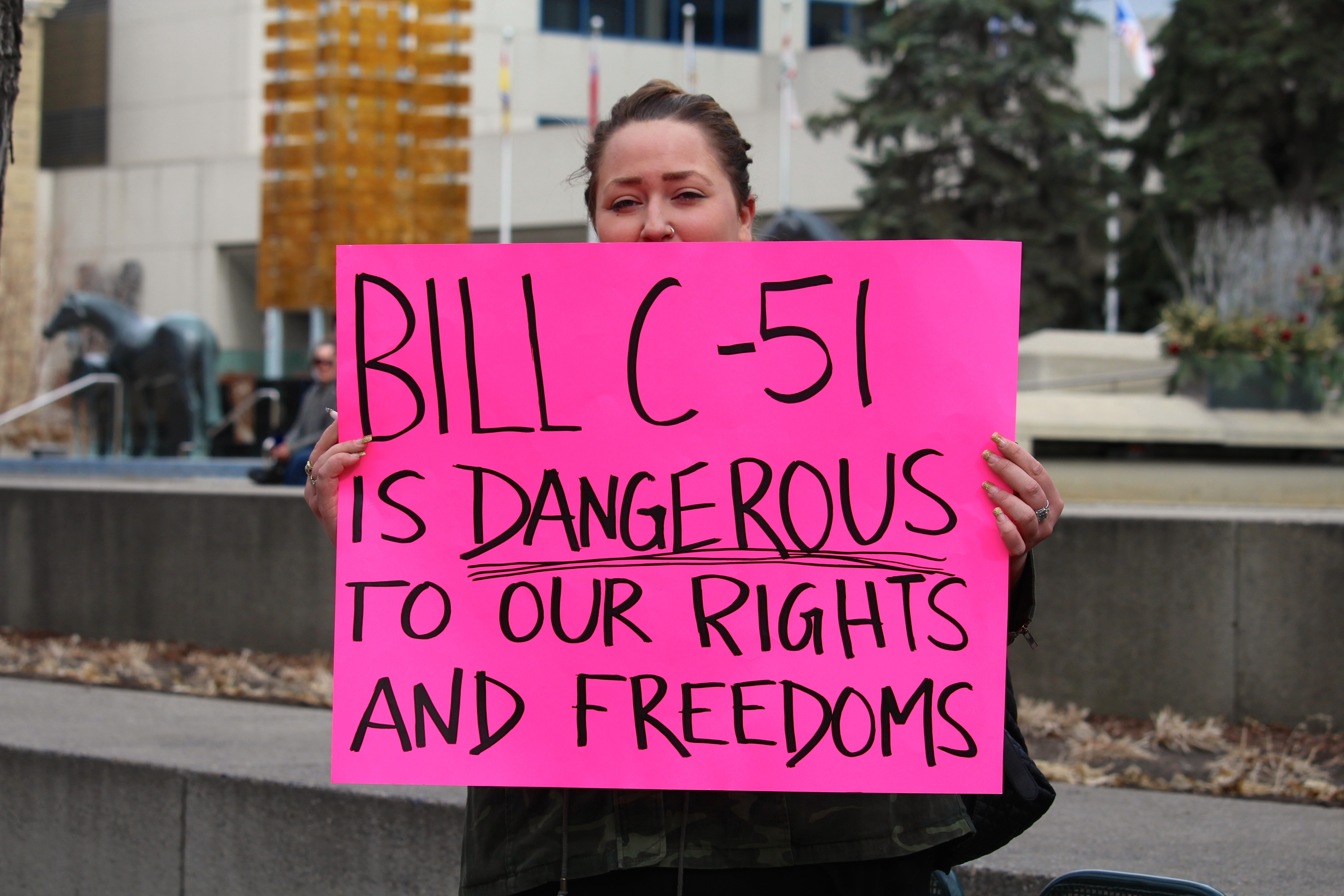To the dismay of hundreds of thousands of Canadians, the senate approved Bill C-51 this Tuesday. In the months before Bill C-51 was passed, petitions, rallies, and letters protesting the bill have been rampant. Now that the bill has just been passed, what can Canadians do or say about it? Stuart Trew has a few suggestions. And Krystalline Kraus reminds us that “this is not the end of resistance.”
Recently, Stephen Harper was quoted saying, ”Gone are the days when Canadian foreign policy was about nothing more than trying to be liked by every dictator with a vote at the UN.” Scott Vrooman reflects on Harper’s statement and explains why, “when it comes to Israel, Canada’s love is blind.“
Medicine Grove Trio is an anarchist and Indigenous resistance rock band founded by French musician, Jean Michael Wizenne. This week, rabble.ca‘s Tania Ehret interviewed Wizenne about Medicine Grove Trio’s work, music, and radical activism.
Doreen Nicoll attended a forum in Hamilton, Ontario called Missing and Murdered Indigenous Women and Girls — The Uncomfortable Truth. In her blog post, Nicoll shares the stories of several Indigenous women who attended the forum and discusses why an inquiry into missing and murdered Indigenous women is critical.
Samantha Nock discusses her experience existing as a Métis woman. Nock shares her thoughts on the politicization of Indigenous existence and the burden of representation that Indigenous peoples carry. Read her reflections here.
The Truth and Reconciliation Commission of Canada held its closing events during the first week of June in Ottawa. Thousands gathered to honor the memory of survivors and support the journey towards healing and reconciliation. Ben Powless, photographer and Mohawk citizen of Six Nations in Ontario, captured the final presentation and events of Truth and Reconciliation. View his photo essay here.
The TRC exposes Canada’s shameful and longstanding history of racism and genocide against Indigenous groups across the nation. The events held by the TRC evoke strong emotions and ignite healing and reconciliation for many. Stephen Harper, on the other hand, has remained as stoic as a robot. Karl Nerenberg says, “Harper’s passive response to TRC is because of white backlash.” Harper formally apologized for residential schools in 2008, however, the fact remains that Harper has a record that belies any pledge to ‘reconciliation’ with First Nations.
Climate justice advocacy often focuses on individual behavioural change to lower carbon footprints rather than collective action. Marc Lee says collective action can benefit everyone. Lee breaks down how we can all live the good life in his blog post here.
Lenée Son is a freelance multimedia journalist living in Metro Vancouver and the rabble.ca Blogs intern.
Image: Flickr/JMacPherson



